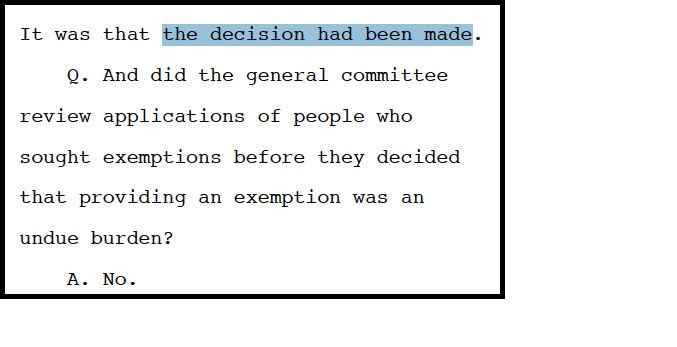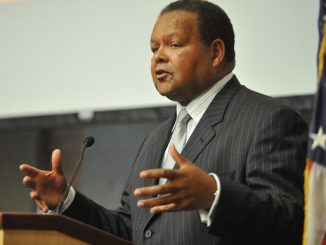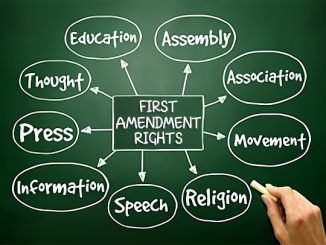
Aimee, founder of Firsthand Media, has two podcasts that anyone interested in the COVID vaccine mandate in NYC should listen to:
Her reports are informative and she is a true warrior on the fight to get justice for the fired unvaccinated municipal workers in New York City.
What we know is that hundreds of NYC Department of Education employees were fired because they did not get vaccinated with the COVID vaccine on or about October 4, 2021, and were suddenly unpaid and on a lawless new category called “Leave Without Pay” LWOP. LWOP was created out of whole cloth by Martin Scheinman.
At the same time, these unvaccinated employees, both tenured and not tenured, were secretly placed on the Problem Code misconduct database and blocked from employment in NYC as an educator and denied unemployment because of their “misconduct” (Department of Labor conclusion and label). Then, the DOE falsely claimed “undue burden” when any of these newly unemployed educators appealed to get either a medical or religious exemption to the COVID Vaccine.
I wish I was making this up.
Why do I say “falsely”? The Rubber Rooms are alive and well in New York City. DOE employees who are not in the group who refused the vaccine, are still sitting in these reassignment rooms getting paid their full salaries while they do not work. I’m not buying the “undue burden” bulloney. It’s a lie.
See the article I wrote for my blog NYC Rubber Room Reporter and ATR Connect:

The NYC Department of Education and UFT Lie About “Undue Burden” and Lack of Accommodations For the Unvaccinated
The $billions of public funds this has cost the DOE for the past 22 years I have been helping the “Rubber Roomers” is absurd, especially when you think about the services the students of New York City are not getting due to the absence of these people thrown out without reason, due process, or just cause.
The City of New York in the fall of 2021 then set up a huge fraudulent scheme to remove as many DOE employees as possible, in continuation of the anti-union policies that were embedded into New York City’s human resources during the Bloomberg administration. Powerful Arbitrator Martin Scheinman designed the first fraud, in his SCHEINMAN AWARD SEPT 10 Impasse Bargaining award where he designed a lawless Leave Without Pay (LWOP) that never existed. LWOP removed unvaccinated employees from their salaries, and prohibited these people from entering school buildings or getting unemployment benefits. Scheinman did say in his Award that if you were a Christian Scientist or Jehovah’s Witness, you could get an exception from the Mandate (CVM).
This Award was shocking in its’ religious discrimination and its’ lawless employment due process procedure.
Scheinman’s Award and Appeal process were thrown out as “Constitutionally unsound” by the New York State Court of Appeals in November 2021. Kathy Rodi had placed every unvaccinated DOE employee secretly on the Problem Code by that date, but no one knew that at that time.
We now know that on October 4, 2021 all unvaccinated employees at the NYC Department of Education were put into the Problem Code database. Betsy Combier declaration
Attorney Austin Graff’s depositions of Kathy Rodi (Director of Employee Relations) and Eric Eichenholtz (NYC Law Department Attorney who created the Citywide Panel) show that neither of these two individuals ever honored a religious exception Appeal from educators who were denied by the Department. They both claimed an “undue burden”.

I have just one question for Mr. Graff: Why didn’t you ask Ms. Rodi any questions about the Problem Code being placed on every unvaccinated educator’s personnel file?
Thus Scheinman’s procedure, the NYC DOE exemptions portal, and the Citywide Panel all served no purpose but to keep unvaccinated educators out of work and without unemployment benefits and healthcare. This will tarnish the City and Department forever.
Here is the full Rodi Deposition Transcript:

Betsy Combier, Editor
betsy@advocatz.com
Editor, ADVOCATZ.com
Editor, ADVOCATZ Blog
Editor, NYC Rubber Room Reporter
Editor, Parentadvocates.org
Editor, New York Court Corruption
Editor, National Public Voice
Editor, NYC Public Voice
Editor, Inside 3020-a Teacher Trials
“I Couldn’t Believe What I Was Hearing.” Attorney Austin Graff Talks About the Bombshell NYCDOE Deposition
In a March 25 deposition for a federal lawsuit, a New York City Department of Education administrator said the department implemented a blanket policy to deny all requests for religious accommodations when the COVID-19 vaccine mandate was imposed on DOE employees in the fall of 2021.
According to the deposition given for Masciarelli v. New York City Department of Education, approximately 3,300 DOE employees who objected to taking a COVID-19 vaccine on religious grounds submitted requests for religious accommodation. The lawsuit was filed by a tenured New York City teacher whose employment was terminated after she was denied a religious accommodation.
In response to questions posed by plaintiff’s attorney Austin Graff, DOE Office of Employee Relations Executive Director Katherine Rodi explained that DOE administrators thought granting accommodations under the COVID-19 vaccine mandate would create an undue burden for the department, and made a decision to deny all requests for religious accommodations.
According to guidance from the U.S. Equal Employment Opportunity Commission, “[t]he determination of whether a particular proposed accommodation imposes an undue hardship ‘must be made by considering the particular factual context of each case.’”
“It Was That the Decision Had Been Made.”
At the March 25 deposition, New York City Law Department attorneys Kathleen Linnane and Andrea Martin represented the Department of Education while Graff questioned Rodi.
In the 111-page deposition document, Rodi describes a “general committee” within the DOE that made decisions about how to implement the mandate after it was created by an executive order from the health commissioner barring individuals who had not taken a COVID-19 vaccine from school buildings:
There was a group of people from HR, the chancellor’s office, the health office, the superintendent’s office, the legal office that joined together when we made decisions to—regarding the—anything related to the vaccine.
She goes on to explain that sometime in September 2021, the general committee determined that granting exemptions would be an undue burden for the DOE. In response to this, attorney Graff asks Rodi for details about the decision:
Q. With respect to determining providing exemptions were undue burdens, was that a decision across the board, or was it an individualized decision made by the committee based upon a person’s application?
A. It was both. First, the—when we were making a decision on how to approach reviewing the applications, we already had thousands of applications. So, from the start, we knew that we would have to review them or consider them on a whole. And we realized that having 2,000 or more, and eventually it was over three thousand applications, if we granted those exemptions, that that would be an undue burden.
However, we also believed that each applicant deserved the right to have an individual review to make sure that there was nothing that we hadn’t considered, that they had appropriately applied to the right place, and that there was—that there was nothing that we had overlooked. So while it was a decision overall based on the numbers that we already had, it was every person’s application was looked at individually.
Later, Graff addresses this seemingly contradictory assertion, asking how DOE officials decided whether to grant each individual request for an accommodation. Rodi replies in this exchange:
A. No one really had a final say.
Q. If no one had a final say, how was someone either granted or denied an exemption?
A. Meaning, no one person had a final say. It was that—that there was the determination from the general committee that these were an undue burden. So it wasn’t that Vicki made that decision, or I made that decision. It was that the decision had been made.
Q. And did the general committee review applications of people who sought exemptions before they decided that providing an exemption was an undue burden?
A. No.
Q. So regardless of what religious belief the person had, it was going to be denied no matter what?
Ms. Linnane: Objection. You can answer.*
A. Yes.
*Note: During the deposition, attorney Linnane often makes an objection and then directs Rodi to answer the question. This is because the lawyers agreed in advance that objections would be reserved until the time of the trial. Linnane is objecting to reserve her right to later object.
With further questioning, Rodi explains that the general committee members were under pressure to reopen in-person schooling and couldn’t do so without replacing at least some of the DOE employees who were barred from entering school buildings. Rodi describes the flood of requests for accommodations the DOE received during the fall of 2021:
We received it from teachers, from custodians, from school food workers, from principals, from assistant principals, from, you know, name the person, name the job. And the fact is that we needed to run a school system . . .
She describes denying accommodation requests in order to “resign” employees so that they could be replaced:
[T]he only option was [sic] had was to resign them from the system without any bias so that we could hire other teachers. Because, again, we had a school to run.
Later Graff questions Rodi about the details of what happened to each individual’s request for an accommodation:
Q. Okay. So when you received an application for religious exemption, what did you review to make a determination whether to grant or deny?
A. We made sure that the person had appropriately applied in the right area. A number of people would check religious exemption, but they were really looking for a medical exemption.
We also made sure that they actually submitted something with their application, because some people included blank sheets of paper. And, then, if it was a medical—if it was in the wrong place, we—we immediately advised them so that they could reapply or reapply in the right place. If it was a blank piece of paper, we immediately advised them so that they could submit appropriate documentation.
And then, other than that, we then—we reviewed to make sure they had submitted something to support, you know, that it was religious in nature. We didn’t judge what it was. And even if it was just a piece of paper that they wrote out. And then we denied their request.
According to this description, the “individual review” the applicants received was simply a check to make sure they hadn’t mistakenly submitted a blank piece of paper or a medical accommodation request.
When Graff asks about the small number of DOE employees who did receive accommodations, Rodi explains that those were granted by the arbitrator who was initially in charge of the accommodation review process, before the Department of Education took over, and “[n]ot by the DOE.”
She underscores the department’s universal application of its policy in this exchange:
Q. So there was no examination of whether or not the person submitting the application had a bona fide religious belief?
Ms. Linanne: Objection. You can answer.
A. No.
Q. What were you looking for—strike that. Was there any religious belief that would’ve entitled someone to a religious exemption?
A. No.
Medical Exemptions Approved by Doctors Denied by DOE
During the latter part of the deposition, Graff touches on medical exemptions, leading to revelations about the determination to deny exemptions even when they were approved by the Department of Education’s own team of doctors.
As Rodi explains:
The medical exemption went to our medical team, which comprised of doctors, and the doctors reviewed those applications.
Q. Did the doctors have the right to grant or deny the exemption, or they just made recommendations to someone?
Ms. Linnane: Objection. You can answer.
A. They had the right to approve on a medical level, and then those were reviewed by—by my team.
Q. And, to your memory, were any medical exemptions that were approved by a medical doctor denied?
Ms. Linnane: Objection. You can answer.
A. Yes.
Q. So even though the doctor recommended an exemption, they were still denied?
Ms. Linnane: Objection. You can answer.
A. Yes.



